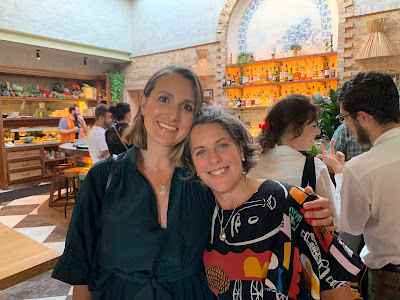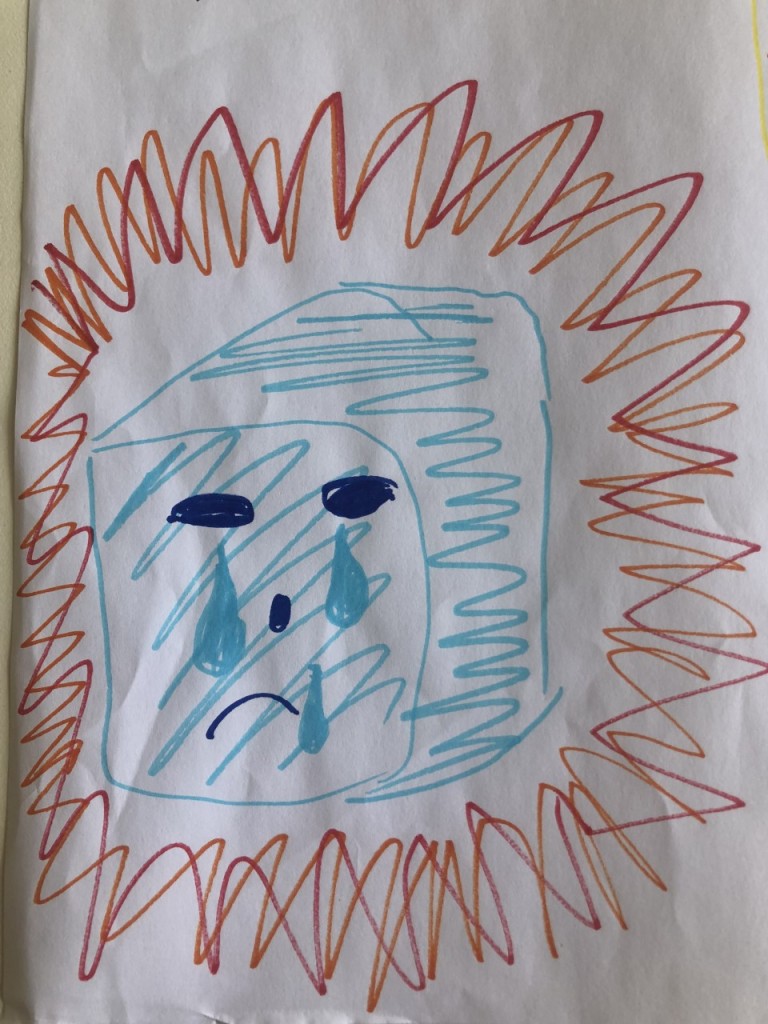Last night I attended a reunion for staff members from the Green Building Council of Australia (GBCA) - it also marked my first outing in the city since COVID and the new baby (yew!), but I digress.
It is so hard to express the role GBCA has played in my life. It was the first job I had in the environmental sector after what I like to call my 'green awakening', and it challenged me, supported me, and helped me grow into the woman I am today. From my first day working at GBCA in 2009, I felt I had found a home of kindred spirits; people who were not only committed to helping halt the environmental crises we find ourselves hurtling toward, but also wanted to connect with others, have fun, and form relationships that would last beyond our days working in the same office, the Greenhouse (complete with worm farms, compost, stunning balcony plants, and many many more technical green features than I'll explain here).
 |
| With my former boss, always mentor, Romilly Madew AO FTSE |
It is also the time when I wrote my book, with incredible thanks the support of then-CEO Romilly Madew AO FTSE (now CEO of Infrastructure Australia). She supported my move to part-time so I could write, suggesting we turn my role into a job share because she wanted to support women achieve their career aspirations. I used the offices for my book launch party. I returned to the GBCA for a contract after my failed move back to the US, a haven amidst my emotional turmoil. Rom also supported the launch of Clean Cut Fashion, as our key speaker at our first presence at Mercedes Benz Fashion Week in Sydney in 2014. And even I rented a desk in the Greenhouse for a few months while writing my PhD thesis, craving the energy of other environmentalists (over the years GBCA shared offices with the Climate Institute, Australian Youth Climate Coalition, and 1 Million Women).
Friendships I have made at GBCA continue, though with less catch-ups in person because of life - you know, changing jobs, moving to new cities or countries, having children. But I'm proud to say that much of my professional network is built around this powerhouse of Australia's sustainable development professionals. Though there were many beloved faces missing last night, their presences were felt in the flood of memories that accompanied the evening.
So, thank you for joining me on my quick trip down memory lane. It can be so easy to overlook significant places and people in your life, and it was a real gift to be tossed into the mix last night with this brilliant, funny and determined group. A special thanks to Rom, Suzie and Robin for making it all happen, I'm already looking forward to the next time.
xxLisa
 |
| Oh the hilarity! And fabulousness! Suzie and I wore the same One Dress by Ever By X! |
PS - Robin, no photo with you! The one person I see the most in real life - hugs








